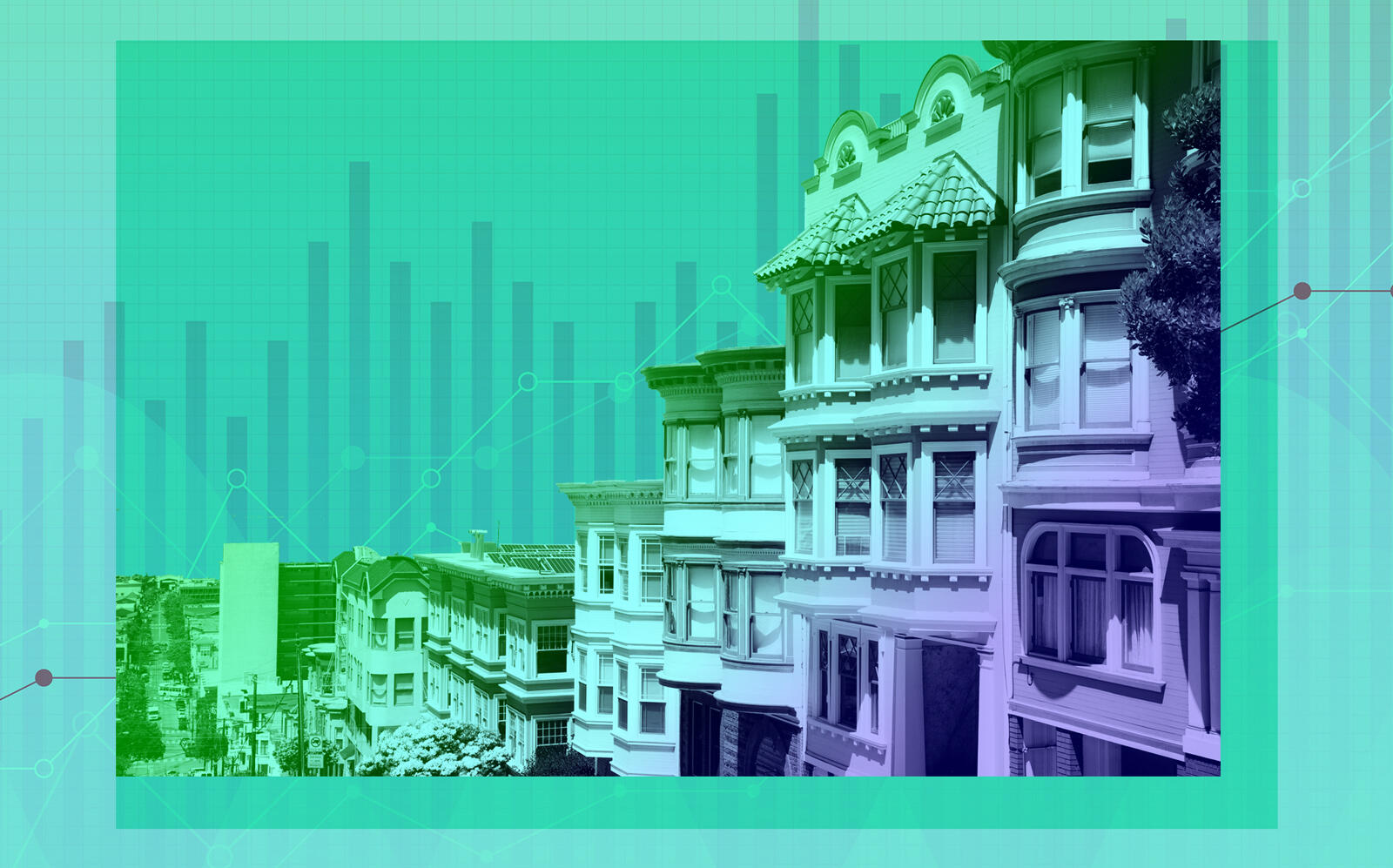San Francisco rents have rebounded dramatically this year, according to a new report from Apartment List. In June, median rents were up 17 percent year-to-date, according to data collected by the rental listing site. Rents were up almost 3 percent just from May to June.
Even with the rise, the June 2021 median rent of around $2,300 is still 14 percent below what landlords were getting in March 2020, when one-bedroom apartments were renting for a median of more than $2,600 a month. Then came the precipitous drop as renters fled the city in search of more space and cheaper homes elsewhere, with the median bottoming out below $2,000 a month in December 2020, according to Apartment List data.
The rent gains can’t come soon enough, said Eric Andresen, owner of West Coast Property Management, which manages around 1,600 rental units in San Francisco. He started seeing apartments empty out as early as April of 2020, with vacancies really picking up in June. By October, more than 20 percent of the units he manages stood empty. “Our vacancy rate pre-COVID was right around 2 percent,” he said.
The residents who stayed in the city started inquiring about rent reductions, which Andresen said he rarely granted because of the city’s rigorous rent control requirements, though he did help many with their applications for federal and local relief funds. Even the “first month free” offers often seen in other areas aren’t advisable in the Bay Area, he said.
“No one should be offering deals, period, end of sentence,” he said. “Those that have are going to be stung by it in the near future. The rent board has already ruled that any deduction, free rent, or even future free rent constitutes a reduction of the base rent, meaning the tenants are awarded overpayment refunds plus penalties, and owners are stuck with a reduced base rent for the life of the tenancy.”
With rent reductions and other incentives to stay in their current apartments unlikely, many of Andresen’s tenants took the opportunity to move up to bigger or more updated apartments during the last few months. He also saw many residents rid themselves of roommate arrangements.
“I think we’re seeing a lot of roommates moving from shared living to single-living situations,” he said.
Andresen said he believes about half of the new leases signed for his apartments this year are tenants “moving up” from their previous living situations. The other half are new tenants arriving in the city as the employment situation improves and offices reopen for in-person work. Renovated one-bedrooms have been the most popular for both groups, he said.
The upward trend extends to other Bay Area metros as well. Oakland is still down 12 percent and San Jose is down 8 percent, among the highest drops in the country. But those areas have seen a rebound as well as the vaccine rollout and subsequent reopening make city living more desirable.
One-bedroom rents in San Francisco were up 5.3 percent between May and June 2021, according to Zumper data, compared with only a 2.5 percent rise for two-bedroom units. That was a bigger jump than in Oakland or Santa Clara, though those areas saw improvement as well.
“The most recent data leave no doubt that Bay Area rents are now pointed upward after a year of unprecedented drops,” said Jeff Andrews, data journalist with Zumper. “Going into 2021, San Francisco rents were down about 25 percent. With workers soon returning to offices, you’d expect rents to keep rising over the course of the next year. Will it get back to a median one-bedroom of $3,500? That remains to be seen and is likely dependent on how broadly tech companies adopt permanent work-from-home policies.”
Andresen said vacancies in his units are currently hovering around 10 percent and rents are still down, but he doesn’t believe they’ll stay that way for long. That’s in part because COVID has made privacy a much more important amenity than it used to be.
“We’re gradually climbing out of the COVID hole and I think we’re going to see the market rebound pretty quickly because we still have a significant shortage of available housing and a lot of what used to be shared housing has become single occupancy,” he said. “Demand will surpass what it was before COVID within a year, I think, and rents will quickly return to the levels they were, if not higher.”
